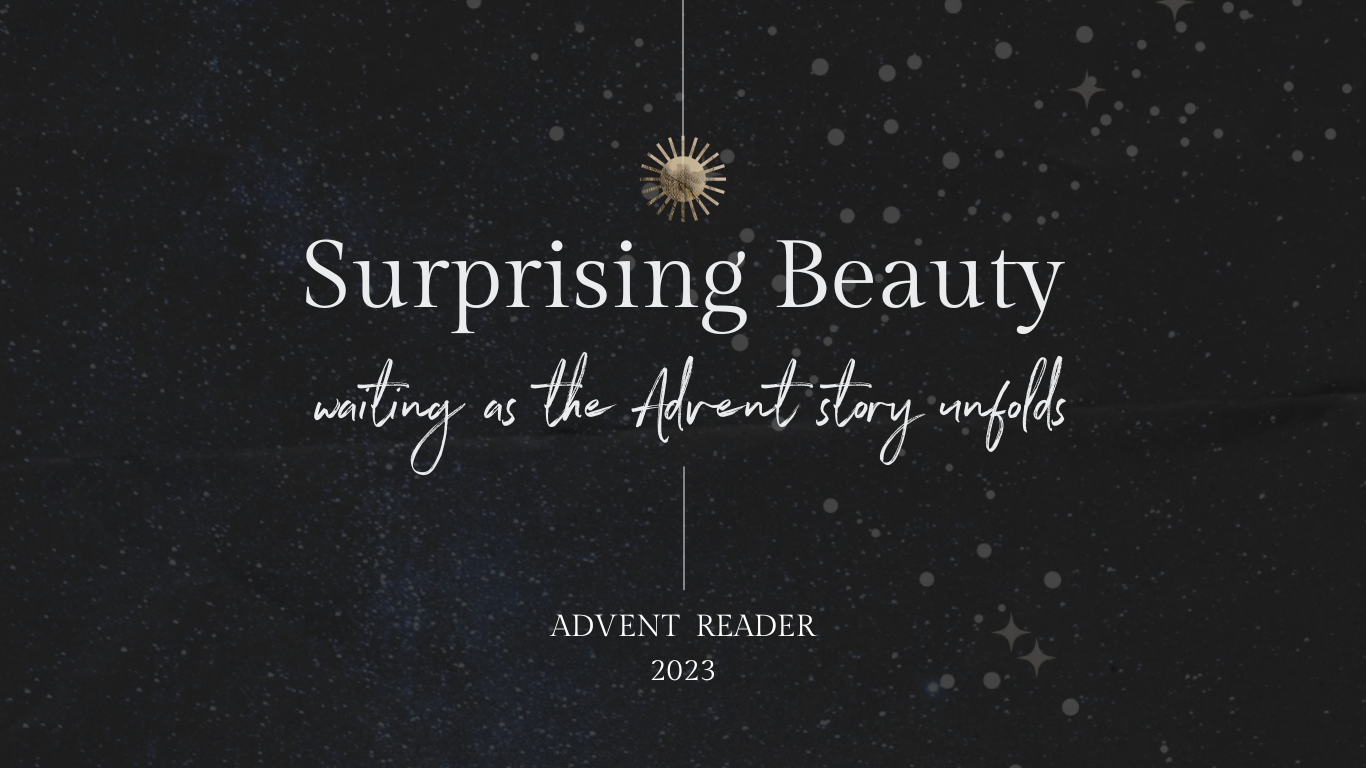Third Wednesday of Advent

Scripture Reading for Today:
Psalm 125
A song of ascents.Those who trust in the Lord are like Mount Zion, which cannot be shaken but endures forever. 2 As the mountains surround Jerusalem, so the Lord surrounds his people both now and forevermore. 3 The scepter of the wicked will not remain over the land allotted to the righteous, for then the righteous might use their hands to do evil. 4 Lord, do good to those who are good, to those who are upright in heart. 5 But those who turn to crooked ways the Lord will banish with the evildoers. Peace be on Israel.
Malachi 3:16-4:6
The Faithful Remnant16 Then those who feared the Lord talked with each other, and the Lord listened and heard. A scroll of remembrance was written in his presence concerning those who feared the Lord and honored his name. 17 “On the day when I act,” says the Lord Almighty, “they will be my treasured possession. I will spare them, just as a father has compassion and spares his son who serves him. 18 And you will again see the distinction between the righteous and the wicked, between those who serve God and those who do not.
Judgment and Covenant Renewal4:1 “Surely the day is coming; it will burn like a furnace. All the arrogant and every evildoer will be stubble, and the day that is coming will set them on fire,” says the Lord Almighty. “Not a root or a branch will be left to them. 2 But for you who revere my name, the sun of righteousness will rise with healing in its rays. And you will go out and frolic like well-fed calves. 3 Then you will trample on the wicked; they will be ashes under the soles of your feet on the day when I act,” says the Lord Almighty. 4 “Remember the law of my servant Moses, the decrees and laws I gave him at Horeb for all Israel. 5 “See, I will send the prophet Elijah to you before that great and dreadful day of the Lord comes. 6 He will turn the hearts of the parents to their children, and the hearts of the children to their parents; or else I will come and strike the land with total destruction.”
Mark 9:9-13
9 As they were coming down the mountain, Jesus gave them orders not to tell anyone what they had seen until the Son of Man had risen from the dead. 10 They kept the matter to themselves, discussing what “rising from the dead” meant. 11 And they asked him, “Why do the teachers of the law say that Elijah must come first?” 12 Jesus replied, “To be sure, Elijah does come first, and restores all things. Why then is it written that the Son of Man must suffer much and be rejected? 13 But I tell you, Elijah has come, and they have done to him everything they wished, just as it is written about him.”
Taking Inventory
by Alanna Johnson
Alanna provides communications & systems support for the New Leaf Network. Alanna brings a wide-ranging background to the table; from biomedical research to pastoral care in the areas of spiritual and creative formation. She recently finished an M.Div. in Clinical Counselling at Tyndale and is now working in community mental health.
I put my Christmas tree up this year the day after Halloween. It’s the earliest I have ever done so. If you knew me, you might be surprised at that. I’ve historically been a person who gets a wee bit overwhelmed by the expectations and the busyness of the season, so Christmas decor doesn’t usually go up until after American Thanksgiving (it’s ok, Canadian friends; my husband is American, and he loves American Thanksgiving, which is why that is an acceptable demarcation of seasons in our home). But this year? This year is different.
The reason it went up that early wasn’t overly planned out. A friend simply asked if I could do so as a favour; he asked to use our home for a branding photoshoot. I had no intention of changing my pre-Christmas-season rhythms this year.
And yet, I did.
I shouldn’t be surprised. Eleven months ago I had no intention of entirely upending almost all of my rhythms.
And yet, I did.
My life has been deeply entwined with my local church for as long as I can remember. Starting as a young teen, I lived and breathed serving in the church, to the point of spending a number of years exploring pastoral ministry. I had no long-planned intention of walking away from church almost a year ago.
And yet, I did.
My story isn’t that unique. There are many of us dealing with disillusionment and disappointment, sorting out what has happened with our relationship to the institutional church. That’s still in process, and I don’t have it all sorted. What I do know is that this is the first pre-Christmas season that feels quiet. Empty. For many years my husband and I spent so much time planning, practicing, and serving in the weeks leading up to Christmas. We’d have church small group special holiday gatherings to attend, and large Christmas banquets to facilitate. We’d have to balance our time and figure out how to make it all work. I’d rush through it all and slam into Christmas day worn out and wondering, “how’d we get here?”
Eventually, I realized that that rhythm had become almost my whole experience of serving in the institutional church. Spending so much time planning, setting up, tearing down, and managing the expectations. Figuring out how to keep it all working against a backdrop of growing confusion, disillusionment and disappointment until I slammed up against a brick wall of “how’d I get here?”
How did I get here? I know I am not alone in asking this question. Maybe one of the reasons why I hit that brick wall so hard is that I’d neglected to seriously consider the invitation of Advent. Fleming Rutledge, the fierce and no-nonsense elder Episcopalian priest and theologian, has been unflinching in her work about what Advent means for the Church. In her book Advent: The Once and Future Coming of Jesus Christ Rev. Rutledge pushes back against the creep of premature celebration during this season:
“…this is the season of Advent. It’s superficially understood as a time to get ready for Christmas, but in truth it’s the season for contemplating the judgment of God. Advent is the season that, when properly understood, does not flinch from the darkness that stalks us all in this world. Advent begins in the dark and moves toward the light—but the season should not move too quickly or too glibly, lest we fail to acknowledge the depth of the darkness…Advent bids us take a fearless inventory of the darkness: the darkness without and the darkness within.”
If Advent is about contemplating the judgment of God and taking inventory of the darkness, I feel like I’ve been in an Advent season for over a year now. Rev. Rutledge probably wouldn’t disparage my feelings. Her thoughts? “Life’s darker side: that’s Advent.”
It’s been a year of quiet. Of being more honest with myself and others. Of allowing myself to be more fully human, in touch with my frailties and my failures, my spiritual mis-formations and misguided efforts. And of no longer being willing to pretend that the Church herself has no darkness worth interrogating.
Christmas Day might be coming on the calendar soon, but I sense my Advent season might carry on for a while longer. As I’ve said, it was not my intention to be here. But I have to believe that it has been the Spirit’s intention, and I receive it for the grace that it is. God has always been up to God’s business, whether we anticipate it or not. Gosh, whether we understand it or not! (I mean, look at the snippet from today’s reading of Jesus and the disciples coming down the mountain… they sound seriously confused in Mark 9:10, “wondering what on earth ‘rising from the dead’ meant.” [MSG]). Rev. Rutledge reminds us “one foundational truth that I have learned from apocalyptic theology, it is this: God is the subject of the verb. God doesn’t need us to help him make his “dream” come true; God is on the march far ahead of us, bringing his purposes to pass”.
If you are with me in the unintended and unanticipated grace of taking inventory in this season, I hope you feel less alone.
Thank you for reading the New Leaf Advent Reader, a collection of reflections from writers across Canada. If you are enjoying the reader, sign up to receive the readings in your inbox each day here: SIGN UP
And please share this reflection with your friends and family who might also enjoy it.



